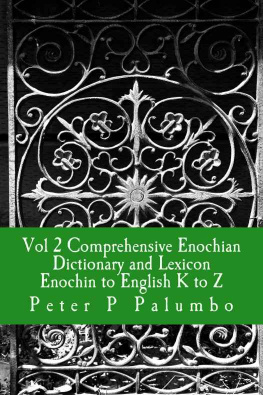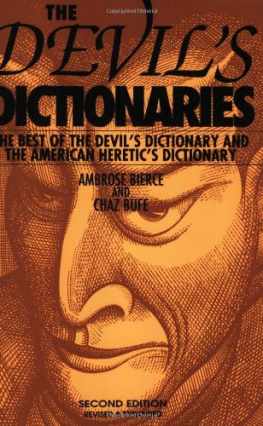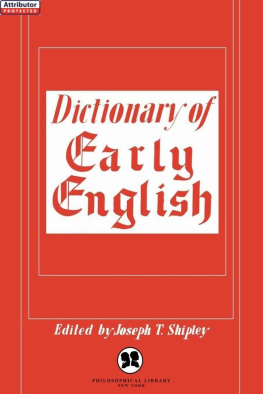Dictionary of the Khazars
A Lexicon Novel
Male Edition
by Milorad Pavic
Translated from the Serbo-Croatian by Christina Pribicevic-Zoric
Inside Flaps
A national bestseller, Dictionary of the Khazars was cited by TheNew York Times Book Review as one of the best books of the year. Written intwo versions, male and female (both available in Vintage International),which are identical save for seventeen crucial lines, Dictionary is theimaginary book of knowledge of the Khazars, a people who flourished somewherebeyond Transylvania between the seventh and ninth centuries. Eschewingconventional narrative and plot, this lexicon novel combines the dictionariesof the world's three major religions with entries that leap between pastand future, featuring three unruly wise men, a book printed in poison ink,suicide by mirrors, a chimerical princess, a sect of priests who can infiltrateone's dreams, romances between the living and the dead, and much more.
"All its delights...the structural novelty and the comic inventiveness ofthe imagery...[are] an ebullient and generous celebration of the readingexperience." -- The New York Times Book Review
"As with Borges or Garca Mrquez...[Pavic] knows how to support histextual legerdemain with superb portrait miniatures and entrancing anecdotes."-- Washington Post Book World
FIRST VINTAGE INTERNATIONAL EDITION, October 1989
Copyright 1988 by Alfred A. Knopf, Inc.
All rights reserved under International and Pan-American Copyright Conventions.
Published in the United States by Vintage Books, a division of
Random House, Inc., New York, and simultaneously in Canada by Random House
of Canada Limited, Toronto. Originally published in France as
Le Dictionnaire Khazar by Editions Pierre Belfond,
Pans. Copyright 1988 by Belfond. Originally published in the United
States by Alfred A. Knopf, Inc., New York, in 1988.
Library of Congress Cataloging-in-Publication Data
Pavic, Milorad. [Hazarski recnik. English]
Dictionary of the Khazars: a lexicon novel in 100,000 words/Milorad Pavic;
translated from the Serbo-Croatian by Christina Pribicevic-Zoric
1st Vintage international ed., male ed.
p. cm. -- (Vintage international) Translation of: Hazarski recnik.
ISBN 0-679-72461-3: $9.95
1. Khazars -- Fiction. I. Title.
PG1419.26.A78H313 1989
891.8'235-dc20 89-40142
CIP
Manufactured in the United States of America
10 9 8 7 6 5 4 3 2 1
Here lies the reader
who will never open this book.
He is here forever dead.
LEXICON COSRI
(A DICTIONARY
OF THE DICTIONARIES
ON THE KHAZAR QUESTION)
RECONSTRUCTION OF THE ORIGINAL
1691 DAUBMANNUS EDITION
(DESTROYED IN 1692), INCLUDING
ITS MOST RECENT REVISIONS
CONTENTS
4. Preserved Fragments from the Introduction to
the Destroyed 1691 Edition of the Dictionary
(translated from the Latin)
THE RED BOOK
(Christian sources on the Khazar question)
THE GREEN BOOK
(Islamic sources on the Khazar question)
THE YELLOW BOOK
(Hebrew sources on the Khazar question)
Father Theoctist Nikolsky as Compiler of
The Khazar Dictionary's First Edition
Excerpt from the Court Minutes, with the
Testimonies of Witnesses in the Dr. Abu
Kabir Muawia Murder Case
On the Usefulness of This Dictionary
PRELIMINARY NOTES TO THE SECOND,
RECONSTRUCTED AND REVISED, EDITION
The author assures the reader that he will not have to die if he readsthis book, as did the user of the 1691 edition, when The Khazar Dictionarystill had its first scribe. Some explanation regarding that edition is inorder here, but for the sake of brevity the lexicographer proposes to strikea deal with his readers. He will sit down to write these notes before supper,and the reader will take them to read after supper. Thereby, hunger will forcethe author to be brief, and gratification will allow the reader to perusethe introduction at leisure.
1. A History of The Khazar Dictionary
The event discussed in this lexicon occurred sometime in the 8th or 9thcentury A.D. (or there were several similar events), and this subject iscommonly referred to by scholars as notes that they prayed in theKhazar language. The sole public building excavated in Suwar, on erstwhileKhazar territory, is probably not Khazar, but Bulgar. Nor was anythingnoteworthy found in the excavations at Sarkel, not even traces of thefortress we know the Byzantines built there for the Khazars' use. Afterthe fall of their state, the Khazars are barely mentioned. In the 10th centurya Hungarian chieftain invited them to settle on his territory. In the year1117 a group of Khazars went to Kiev to see Prince Vladimir Monomakh. InPressburg, in 1309, Catholics were forbidden to enter into matrimony withKhazars, and in 1346 the decision was confirmed by the Pope. That is aboutall there is.
notes that they prayed in theKhazar language. The sole public building excavated in Suwar, on erstwhileKhazar territory, is probably not Khazar, but Bulgar. Nor was anythingnoteworthy found in the excavations at Sarkel, not even traces of thefortress we know the Byzantines built there for the Khazars' use. Afterthe fall of their state, the Khazars are barely mentioned. In the 10th centurya Hungarian chieftain invited them to settle on his territory. In the year1117 a group of Khazars went to Kiev to see Prince Vladimir Monomakh. InPressburg, in 1309, Catholics were forbidden to enter into matrimony withKhazars, and in 1346 the decision was confirmed by the Pope. That is aboutall there is.
The Khazars' act of conversion, which was to seal their fate, occurredin the following way. According to ancient chronicles, the Khazar ruler,the  ,had a dream and sought threephilosophers to interpret it for him. This was a matter of importance tothe Khazar state, because the kaghan had decided to convert, together withhis people, to the faith of the sage who would give the most satisfactorydream interpretation. Some sources assert that, when the kaghan made hisdecision that day, the hair on his head died, and although he felt ithappen, something nevertheless drove him on. And so it was that a Moslem,a Jewish, and a Christian divine -- a dervish, a rabbi, and a monk -- wereto be found at the kaghan's summer residence. Each received a knife made ofsalt as a gift from the kaghan, and they began their debate. The sages'viewpoints, their contest based on the tenets of their three differentfaiths, the characters involved in, and the outcome of the "Khazarpolemic" aroused keen interest and strongly conflicting opinionsabout the event and its consequences, the victors and the vanquished, andthrough the centuries they became the subject of repeated debate in Hebrew,Christian, and Moslem circles; all this continues to the present, althoughthe Khazars have long since ceased to exist. Sometime in the 17th centurythere was a surprising renewal of interest in Khazar affairs, and theimmense body of studies concerning the Khazars was systematized and publishedin Borussia (Prussia) in 1691. Among the items examined were samples oftriangular coins, names inscribed on old rings, images painted on a pitcherof salt, diplomatic correspondence, portraits of writers in which all thebook titles etched in the background were transcribed, reports fromspies, testaments, voices of Black Sea parrots thought to speakthe extinct Khazar language, painted scenes of music-making (from whichmusical annotations drawn on score books were deciphered), and even atattooed human skin, not to mention the Byzantine, Hebrew, and Arab archivalmaterial. In short, everything that the imagination of 17th-century man couldtame and turn to his own advantage was drawn on. And all this was collectedbetween the covers of one dictionary.
,had a dream and sought threephilosophers to interpret it for him. This was a matter of importance tothe Khazar state, because the kaghan had decided to convert, together withhis people, to the faith of the sage who would give the most satisfactorydream interpretation. Some sources assert that, when the kaghan made hisdecision that day, the hair on his head died, and although he felt ithappen, something nevertheless drove him on. And so it was that a Moslem,a Jewish, and a Christian divine -- a dervish, a rabbi, and a monk -- wereto be found at the kaghan's summer residence. Each received a knife made ofsalt as a gift from the kaghan, and they began their debate. The sages'viewpoints, their contest based on the tenets of their three differentfaiths, the characters involved in, and the outcome of the "Khazarpolemic" aroused keen interest and strongly conflicting opinionsabout the event and its consequences, the victors and the vanquished, andthrough the centuries they became the subject of repeated debate in Hebrew,Christian, and Moslem circles; all this continues to the present, althoughthe Khazars have long since ceased to exist. Sometime in the 17th centurythere was a surprising renewal of interest in Khazar affairs, and theimmense body of studies concerning the Khazars was systematized and publishedin Borussia (Prussia) in 1691. Among the items examined were samples oftriangular coins, names inscribed on old rings, images painted on a pitcherof salt, diplomatic correspondence, portraits of writers in which all thebook titles etched in the background were transcribed, reports fromspies, testaments, voices of Black Sea parrots thought to speakthe extinct Khazar language, painted scenes of music-making (from whichmusical annotations drawn on score books were deciphered), and even atattooed human skin, not to mention the Byzantine, Hebrew, and Arab archivalmaterial. In short, everything that the imagination of 17th-century man couldtame and turn to his own advantage was drawn on. And all this was collectedbetween the covers of one dictionary.
An explanation for the awakened interest in the 17th century, one thousandyears after the event, was left by a chronicler in the following obscuresentences, which read: "Each of us promenades his thought, like a monkeyon a leash. When you read, you always have two such monkeys: your own andone belonging to someone else. Or, even worse, a monkey and a hyena. Now,consider what you will feed them. For a hyena does not eat the same thing asa monkey..."
Next page









 notes that they prayed in theKhazar language. The sole public building excavated in Suwar, on erstwhileKhazar territory, is probably not Khazar, but Bulgar. Nor was anythingnoteworthy found in the excavations at Sarkel, not even traces of thefortress we know the Byzantines built there for the Khazars' use. Afterthe fall of their state, the Khazars are barely mentioned. In the 10th centurya Hungarian chieftain invited them to settle on his territory. In the year1117 a group of Khazars went to Kiev to see Prince Vladimir Monomakh. InPressburg, in 1309, Catholics were forbidden to enter into matrimony withKhazars, and in 1346 the decision was confirmed by the Pope. That is aboutall there is.
notes that they prayed in theKhazar language. The sole public building excavated in Suwar, on erstwhileKhazar territory, is probably not Khazar, but Bulgar. Nor was anythingnoteworthy found in the excavations at Sarkel, not even traces of thefortress we know the Byzantines built there for the Khazars' use. Afterthe fall of their state, the Khazars are barely mentioned. In the 10th centurya Hungarian chieftain invited them to settle on his territory. In the year1117 a group of Khazars went to Kiev to see Prince Vladimir Monomakh. InPressburg, in 1309, Catholics were forbidden to enter into matrimony withKhazars, and in 1346 the decision was confirmed by the Pope. That is aboutall there is. ,had a dream and sought threephilosophers to interpret it for him. This was a matter of importance tothe Khazar state, because the kaghan had decided to convert, together withhis people, to the faith of the sage who would give the most satisfactorydream interpretation. Some sources assert that, when the kaghan made hisdecision that day, the hair on his head died, and although he felt ithappen, something nevertheless drove him on. And so it was that a Moslem,a Jewish, and a Christian divine -- a dervish, a rabbi, and a monk -- wereto be found at the kaghan's summer residence. Each received a knife made ofsalt as a gift from the kaghan, and they began their debate. The sages'viewpoints, their contest based on the tenets of their three differentfaiths, the characters involved in, and the outcome of the "Khazarpolemic" aroused keen interest and strongly conflicting opinionsabout the event and its consequences, the victors and the vanquished, andthrough the centuries they became the subject of repeated debate in Hebrew,Christian, and Moslem circles; all this continues to the present, althoughthe Khazars have long since ceased to exist. Sometime in the 17th centurythere was a surprising renewal of interest in Khazar affairs, and theimmense body of studies concerning the Khazars was systematized and publishedin Borussia (Prussia) in 1691. Among the items examined were samples oftriangular coins, names inscribed on old rings, images painted on a pitcherof salt, diplomatic correspondence, portraits of writers in which all thebook titles etched in the background were transcribed, reports fromspies, testaments, voices of Black Sea parrots thought to speakthe extinct Khazar language, painted scenes of music-making (from whichmusical annotations drawn on score books were deciphered), and even atattooed human skin, not to mention the Byzantine, Hebrew, and Arab archivalmaterial. In short, everything that the imagination of 17th-century man couldtame and turn to his own advantage was drawn on. And all this was collectedbetween the covers of one dictionary.
,had a dream and sought threephilosophers to interpret it for him. This was a matter of importance tothe Khazar state, because the kaghan had decided to convert, together withhis people, to the faith of the sage who would give the most satisfactorydream interpretation. Some sources assert that, when the kaghan made hisdecision that day, the hair on his head died, and although he felt ithappen, something nevertheless drove him on. And so it was that a Moslem,a Jewish, and a Christian divine -- a dervish, a rabbi, and a monk -- wereto be found at the kaghan's summer residence. Each received a knife made ofsalt as a gift from the kaghan, and they began their debate. The sages'viewpoints, their contest based on the tenets of their three differentfaiths, the characters involved in, and the outcome of the "Khazarpolemic" aroused keen interest and strongly conflicting opinionsabout the event and its consequences, the victors and the vanquished, andthrough the centuries they became the subject of repeated debate in Hebrew,Christian, and Moslem circles; all this continues to the present, althoughthe Khazars have long since ceased to exist. Sometime in the 17th centurythere was a surprising renewal of interest in Khazar affairs, and theimmense body of studies concerning the Khazars was systematized and publishedin Borussia (Prussia) in 1691. Among the items examined were samples oftriangular coins, names inscribed on old rings, images painted on a pitcherof salt, diplomatic correspondence, portraits of writers in which all thebook titles etched in the background were transcribed, reports fromspies, testaments, voices of Black Sea parrots thought to speakthe extinct Khazar language, painted scenes of music-making (from whichmusical annotations drawn on score books were deciphered), and even atattooed human skin, not to mention the Byzantine, Hebrew, and Arab archivalmaterial. In short, everything that the imagination of 17th-century man couldtame and turn to his own advantage was drawn on. And all this was collectedbetween the covers of one dictionary.